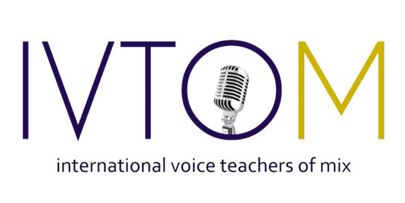Muscle Memory
Muscle Memory by Dean Kaelin
May 6, 2019
I received the following question from a teacher:
I’ve been working with an adult woman who says she has a hard time
speaking correctly and that she goes hoarse a lot just from talking so I told
her she can do some exercises just like the warmups to help her speak more
from her lips. But I wondered if you have any good exercises that could really
help her.
Here is my response:
Not particular exercises other then the usual voice/singing warm ups. Whenever
you are changing singing or speaking habits you are attempting to change muscle memory (difficult to do). This is hard enough with singing, but it is even more difficult with speaking since we do it more and have done it longer.
So, singing exercises are the easiest, fastest best way to get the feeling of how you should be singing. The brain doesn’t tend to resist exercises like it does trying to change singing (or speaking) directly. Once the person starts getting comfortable with the exercises (how we SHOULD be vocalizing) then we use the conscious brain to try and get the same feeling on songs. We do this by #1, turning the songs into exercises, by using exercise sounds that are working well on the songs. Once we can do that we try and sneak in the words.
Many times muscle memory kicks in at this point and the singer falls out of the “good place”. We then go back to the exercises and exercise sounds to regain the feeling. Eventually we need this to become unconscious and natural.
Once the person is now “singing in the right place”, we can then take the next step and try and get them to speak where they are now singing. They will fall back into their old habits because of muscle memory, but once they feel it on their songs at least they know what they are looking for and can match it easier. It isn’t such a mystery. Then it just comes down to their will power and how much they want to change. With both the singing and the speaking it will feel strange to them at first, but it will feel good. I call it “good weird”. If they do it enough it will become their “new normal” and become natural although at first it may seem unnatural even though it is more relaxed and has less pressure.
This happened to me personally. Years ago when I first started teaching voice I found that my voice became hoarse throughout the day, even in only a couple of hours of teaching. I recognized that it was not from my singing or singing demonstrations, but from my speaking.
However, I noticed after 10 years of teaching or so that my speaking voice had changed. Basically I had been spending so much time demonstrating proper vocal production during the lessons that over time I just started speaking there! For the past 37 years I have never had a problem with my voice tiring out even during 10 hour days of teaching. In fact, I usually always feel better at the end of the day then I did at the beginning now. The added benefit is that my speaking voice is much more resonant and pleasing than before as well. If I would have made a conscious attempt to change my speaking voice the change would have happened much quicker I am sure.
Another thing you can do is to try and have the person speak on a higher pitch than they
usually speak. This will get them into a more “sing-song” production and will usually help them feel less pressure. Many speech/vocal problems come from “lazy speech” where people speak at too low of a pitch and force their voice.
Hope that helps. The fastest and most effective method I have found is again exercises/application to song (sounds first, then words)/ application to speaking.

